Eugene Von Bruenchenhein (1910–1983) was an American self-taught artist from Milwaukee, Wisconsin. Over the course of fifty years, from the 1930s until his death in 1983, Von Bruenchenhein produced an expansive oeuvre of poetry, photography, painting, drawing and sculpture. His body of work includes over one thousand colorful, apocalyptic landscape paintings; hundreds of sculptures made from chicken bones, ceramic and cast cement; pin-up style photos of his wife, Marie; plus dozens of notebooks filled with poetic and scientific musings. Never confined to one particular method or medium, Von Bruenchenhein continually used everyday, discarded objects to visually explore imagined past and future realities.

The Sylvanus Wade House is a former stagecoach inn located in Greenbush, Wisconsin, United States. The house provided lodging and meals to travelers in the mid-1800s, before the construction of a nearby railroad made the stagecoach route obsolete. Today, it is part of the Wade House Historic Site.

The Mary Nohl Art Environment is a residence in the Milwaukee suburb of Fox Point, Wisconsin. The property, which is filled with folk art created by artist Mary Nohl (1914–2001), is listed on the National Register of Historic Places.
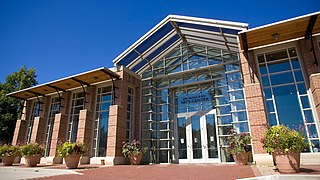
The John Michael Kohler Arts Center is an independent, not-for-profit contemporary art museum and performing arts complex located in Sheboygan, Wisconsin, United States. The center preserves and exhibits artist-built environments and contemporary art. In 2021, the center opened the Art Preserve, a satellite museum space dedicated to art environments.

The John Michael Kohler House is an historic house listed on the National Register of Historic Places in Sheboygan, Wisconsin, United States. The house is currently a part of the John Michael Kohler Arts Center complex.
Warrington Wickham Colescott Jr. was an American artist, he is best known for his satirical etchings. He was a master printmaker and operated Mantegna Press in Hollandale, Wisconsin, with his wife and fellow artist Frances Myers. Colescott died on 10 September 2018, at the age of 97.

The Vollrath Company is an American company based in Sheboygan, Wisconsin that manufactures stainless steel and aluminum equipment and smallwares, and deep draw stainless steel items, for commercial and institutional foodservice operations.
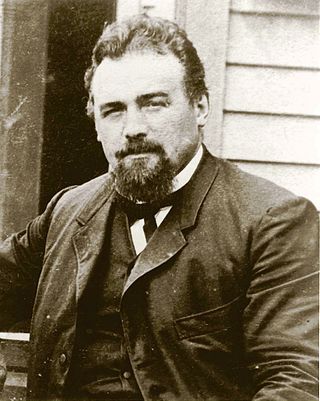
John Michael Kohler II was member of the Kohler family of Wisconsin and was a prosperous industrialist and mayor of Sheboygan, Wisconsin. Kohler founded what later became known as the Kohler Company, a large producer of bathroom and kitchen products.
Terry Kohler was a member of the Kohler family of Wisconsin and an American businessman, Wisconsin Republican Party leader, sportsman, philanthropist, and conservationist.
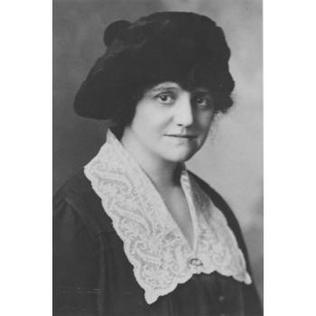
Marie Christine Kohler was a member of the Kohler family of Wisconsin and was prominent in the community life of Sheboygan and Kohler, active in social work and better homes projects, and was well known for her philanthropic deeds.

Kohler Distinguished Guest Series is a series of lecture and performing arts programs began in 1944 with a current venue at the Kohler Memorial Theatre in Kohler, Wisconsin.
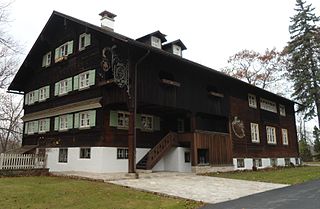
The Waelderhaus is a structure in Kohler, Wisconsin, managed by the Kohler Foundation. It was constructed by Marie C Kohler as a memorial to her father John Michael Kohler II (1844–1900). It was built as a headquarters for the Kohler Women's Club, the local chapter of Girl Scouts and as a public meeting place for lectures and small performances.
Julilly House Kohler was a member of the Kohler family of Wisconsin and was writer of books for children. She lived in Kohler, Wisconsin. She was active in social work and community projects, and was well known for advocacy for the preservation of burial mounds constructed by the North American Mound Builders at Sheboygan Indian Mound Park.

The Kohler Riverbend Estate is an historic property located in Kohler, Wisconsin. It was built in 1922–1923 By Walter J. Kohler, Sr., then governor of Wisconsin and president of the Kohler Company. It was reported to cost in excess of $1,000,000 to construct.

Wade House Historical Site, also called Old Wade House, is a 240-acre (97 ha) open-air museum in Greenbush, Wisconsin. A Wisconsin historic site, the site is operated by the Wisconsin Historical Society.

Kaspar Albrecht was an Austrian architect and sculptor.
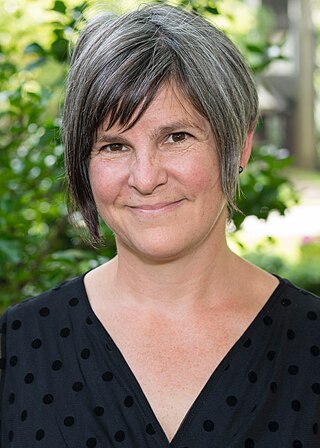
Beth Lipman is a contemporary artist working in glass. She is best known for her glass still-life compositions which reference the work of 16th- and 17th-century European painters.
Destination Kohler is the hospitality and real estate arm of the Kohler Company, and the tourism promotion agency for the Village of Kohler, Wisconsin.

Albert Zahn was a self-taught sculptor from the Prussian province of Pomerania, who lived and worked in Door County, Wisconsin for most of his life. He is known primarily for his painted wood carvings of birds. Zahn is also well known for his depictions of angels and for the creation of the Albert Zahn House which he built with his wife Louise Zahn, and adorned with hundreds of his carvings. Albert Zahn carved most of his sculptures from cedar and then instructed Louise Zahn who painted them. Some of Zahn's other notable subjects include maritime workers, Prussian soldiers, dogs, and deer.
Ruth DeYoung Kohler II was a museum director and teacher from Wisconsin who championed under-recognized, self-taught artists and vernacular art. She was the director of the John Michael Kohler Arts Center from 1972–2016. She led the development of the Art Preserve in Sheboygan, Wisconsin, the first museum dedicated to the exhibition and conservation of artist-built environments.













